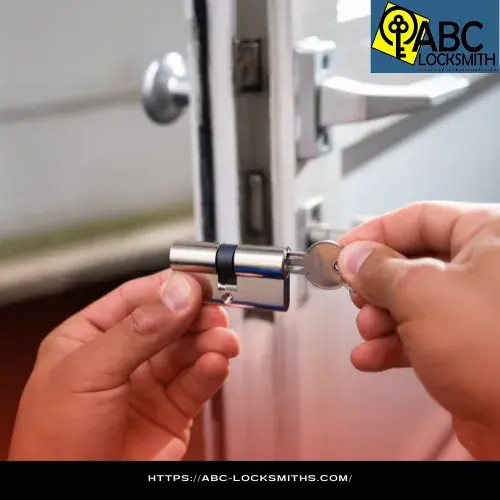Locks are the first line of defense for your home, but they don’t last forever. Over time, they can become jammed, worn out, or even completely fail, leaving your home vulnerable. Whether you’re dealing with a sticky lock, broken key, or malfunctioning deadbolt, these issues can be frustrating—and sometimes even put your security at risk.
This is where a residential locksmith comes in. These professionals can repair, rekey, or replace locks to ensure your home stays secure. From simple maintenance to emergency lockout services, a locksmith can quickly diagnose and fix common lock problems.
In this guide, we’ll cover some of the most common home lock issues and explain how a residential locksmith can help. Whether your lock is difficult to turn, your key won’t work, or you’ve lost access completely, there’s always a solution.
Stuck or Jammed Locks? How a Residential Locksmith Can Help
A stuck or jammed lock is one of the most common issues homeowners face. It can happen due to dirt buildup, rust, or even a misaligned door. If you find yourself struggling to turn the key or if the lock won’t budge at all, forcing it can make the problem worse.
A residential locksmith can quickly diagnose the issue. In many cases, a professional can clean and lubricate the internal components to get the lock working again. If the lock is rusted or worn out, they may recommend rekeying or replacing it to prevent future problems.
Sometimes, locks get jammed due to a misaligned strike plate—a simple adjustment that a locksmith can fix in minutes. No matter the cause, trying to force a stuck lock could lead to a broken key, making the situation even worse. Instead, calling a locksmith ensures a safe and effective solution.
Broken Keys in Locks? A Residential Locksmith Has the Fix
Breaking a key inside a lock is a frustrating experience that can happen if your key is old, worn out, or turned too forcefully. When this happens, trying to remove it yourself with pliers or other tools can push the broken piece further inside, making the situation worse.
A residential locksmith has the proper tools to safely extract the broken key without damaging the lock. If the lock is still in good condition, they can simply make a new key and ensure everything works smoothly. However, if the lock has been weakened, a locksmith may suggest replacing or rekeying it for better security.
To prevent this issue in the future, locksmiths often recommend regular key replacements to avoid using weakened keys. They can also upgrade your locks to keyless entry systems if you want a more convenient and secure solution.
Worn-Out or Loose Locks? A Residential Locksmith Can Restore Security
Over time, locks can become loose, worn down, or even stop working altogether. This often happens due to daily use, improper installation, or exposure to the elements. If your lock feels wobbly or doesn’t latch properly, it could leave your home at risk.
A residential locksmith can tighten or adjust loose locks to ensure they function correctly. If the internal mechanism is worn out, they may recommend replacing the lock with a stronger, more secure option. Modern high-security locks or smart locks can provide better protection and last longer than standard locks.
Ignoring a loose or faulty lock can make your home an easy target for burglars. If you notice any signs of wear, it’s best to have a locksmith inspect and fix the issue before it leads to a bigger security problem. A professional locksmith ensures your home stays protected with fully functional, high-quality locks.
Read More:
Rekeying vs. Lock Replacement: Expert Advice from a Residential Locksmith


